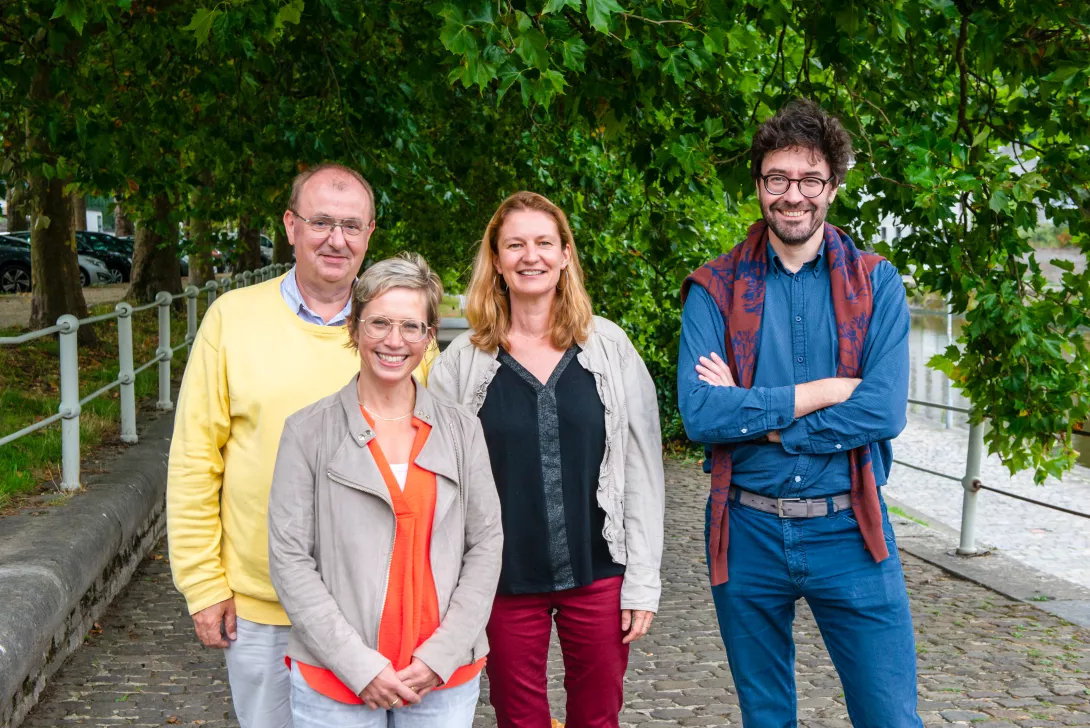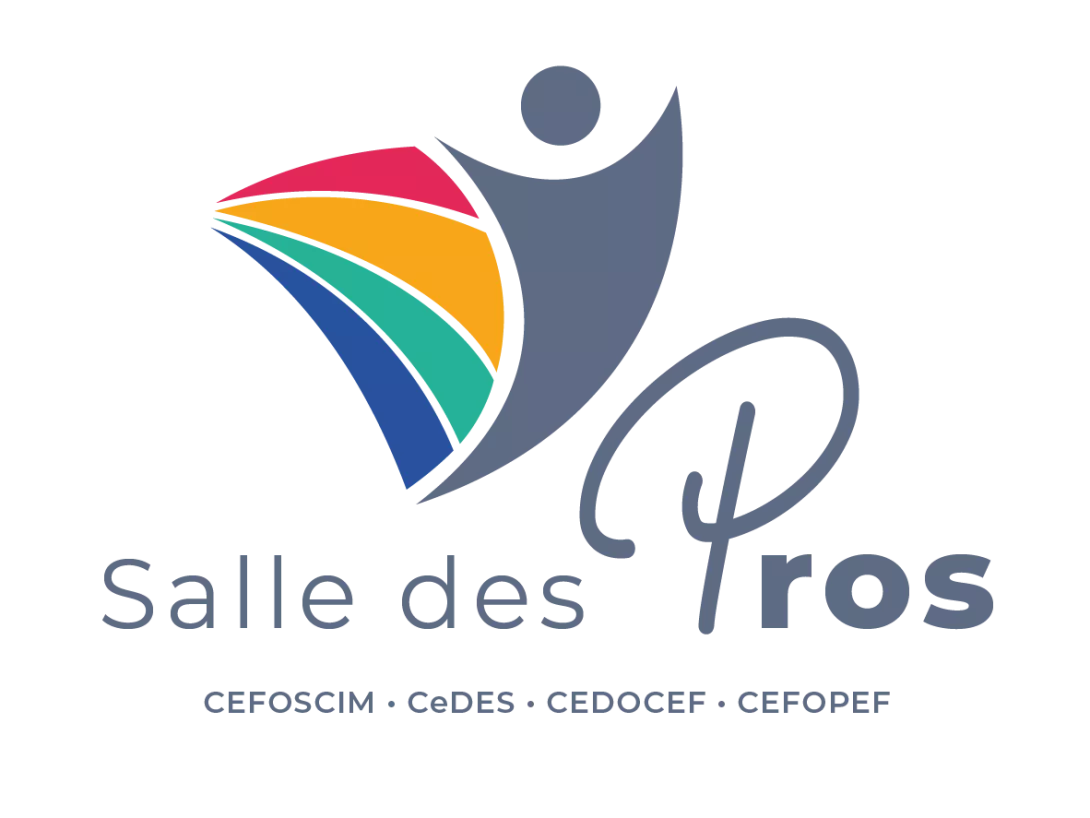
This article was produced for the "Tomorrow learn" section of Omalius magazine #26 of September 2022.
Active in the field of continuing education since 1977, the University of Namur attaches particular importance to the actors of education and teaching. For many years, CEDOCEF, CEDES, CEFOSCIM and CEFOPEF (see below) have been offering them various activities: continuing education, conferences, teaching tools, etc.
Occasional collaboration between the centres had been developing for about ten years within a centre which brought together the directors of the centres. The Salle des Pros also existed within the CEFOPEF. It was a place of exchange at the intersection between practice and research, and offered conferences on cross-cutting educational issues.
Today, by physically and structurally grouping together in the Salle des Pros, the four centres are taking a further step in their exchange and networking dynamics. Their aim is to set up continuous training courses that are increasingly qualitative, transversal and innovative.
In concrete terms, the teams of the centres are now located in the University's Business and Learning Centre building, located at number 5 rue Godefroid in Namur. They now welcome their audiences and organise a large part of their activities there. Teachers, school headmasters, educational coaches and teacher trainers can now meet more easily. More accessible and more visible, the Salle des Pros will undoubtedly encourage a new dynamic of collaboration.
Specificity and autonomy of the centres
Within the Salle des Pros, the four centres remain autonomous in order to preserve their specificities. "Each, because of its history, has developed activities in different niches. For example, CEDOCEF is recognised as a key player in French didactics research thanks to its publications such as the "Diptyque" collection," explains David Vrydaghs, director of the centre. For its part, CEFOSCIM stands out for its expertise in landscape analysis, which has led to the creation of two landscape observatories and a university certificate in this specific field. The CeDES is, for its part, recognised for its digital platform offering multiple educational and didactic resources widely used by teachers of economic and social sciences. As for CEFOPEF, it stands out for its transversality and its actions with various audiences, including teaching and support staff, as well as for its willingness to involve field actors in its activities.
Research, the asset of continuing education centres.
While preserving their autonomy, the centres also intend to keep their faculty anchorage. "This anchoring is essential because it allows us to maintain a strong link with research. All the actions we carry out are based on research in didactics and psycho-pedagogy," stresses Sandrine Biémar, director of the CEFOPEF. "We are also fortunate to be able to rely on the IRDENA institute (Institut de Recherche en Didactiques et Education) of which we are a part", remarks Philippe Snauwaert, Director of CEFOSCIM.

Group photo: Philippe Snauwaert, Sandrine Biemar, Sophie Pondeville, David Vrijdaghs
From research to the field and back again!
Continuing education offers researchers the opportunity to disseminate the results of their work more widely. For example, CEFOSCIM presented a new tool developed by their researchers, the HEREDITY Challenge, at the recent Science for Teachers Congress. Similarly, CEDOCEF and CEFoPEF are integrating into their certificate in 'differentiation and languages of schooling' content from research funded by the FWB that was conducted in 2019-2020 in collaboration with primary and secondary schools.
"This permanent exchange with the actors in the field also allows us to identify a certain number of emerging needs and to try to respond to them in the best way. For example, we have noticed that teachers do not always understand all the issues, all the difficulties, of media such as websites, cinema, TV series, when they use them in their classes. And when they do, they are not always able to deal with them. So they come back to us with questions. This is why CEDOCEF has often offered in recent years, continuing education courses on cinema in particular, but also on series, comics or internet resources", explains David Vrydaghs.
With "La Salle des Pros", the University of Namur is expanding its range of continuing education courses for education and teaching professionals. It favours the transversal approach of the different centres, while maintaining their faculty anchorage, which is essential to preserve their close link with research and initial teacher training. It will certainly become an essential place for many schools and teachers, especially in the current context marked by the implementation of the pact of excellence and the reform of initial teacher training.
The four centres of the Salle des Pros
The CEDOCEF is mainly aimed at French teachers, but it also welcomes teachers of expressive arts or history in its training courses, depending on the themes addressed.
CeDES distributes multiple pedagogical and didactic resources for teachers of economics, management and social sciences (transitional and qualifying education): press reviews, thematic files, learning sequences, etc. It also offers face-to-face training for this audience.
CEFOSCIM organizes training courses for secondary school teachers in chemistry, biology, physics, mathematics or geography, but also continuous training courses in animal management and university certificates.
CEFOPEF offers a wide audience (teachers, directors, pedagogical advisors, PMS, educators, training managers, coaches, etc.) activities on psycho-pedagogical themes such as differentiation, setting up collaborative dynamics, managing emotions in learning (etc.). Various schemes combining exchanges and analysis of practices, training and coaching are offered to those involved in education.

